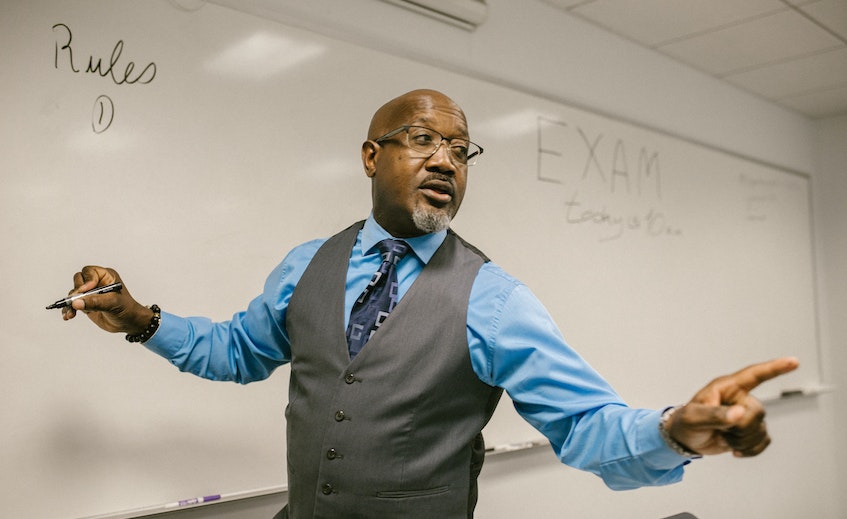
Critical Perspectives 2019
July 1, 2019
Towards a critical teaching pedagogy in Industrial/Organisational Psychology
September 4, 2019The Future of.. working towards equality in academia
by Andromachi Spanouli, Joanna Sosnowska, Dieu Hack-Polay & Edina Dóci
The idea of meritocracy, according to which every individual has a fair chance to succeed and rise to power, is central to the neoliberal university. At the core of it rests the assumption that we are all players on a level playing field. But the moment one looks at figures, meritocracy gets exposed for what it is: a myth, as numbers show that women and minorities are systematically underrepresented in universities when it comes to positions of power. Inequality comes in many forms and shapes, but due to time constraints, in the session of ‘Promoting equality in academia’ at the Future of Work and Organizational Psychology (FoWOP) day we zoomed in on ethnicity and gender. In this session, we challenged the idea of meritocracy, shared our own experiences of inequalities in academia, listed what we would need to tackle inequalities in our working lives and around us, and translated those needs into action points.
So, what do we need to work towards eradicating inequalities in academia? First, we need the systemic nature of inequalities to be recognized. To challenge the status quo, we need to break the silence about issues of discrimination, harassment, and exclusion in academia. We need people in power positions who understand and prioritize these issues, people who take deliberate measures, and when necessary, radical action, to create equal opportunities. We have a pressing need for diverse role models to represent the richness of our identities and backgrounds, and we strongly need mentors to help us navigate the hurdles academic life poses on us, while we strive to create sensible and dignified work environments for everyone. But ultimately, in the face of the persistence of pronounced ethnic and gender disadvantage, one questions the validity of initiatives taken so far and wonders whether more radical strategic actions may be necessary.
As researchers we also have to recognize the responsibility that comes with this goal. We need to acknowledge the various forms of inequality both in our own universities and in the organizations we study; become aware of our own biases; and reflect on how these could potentially influence our research. We need to acknowledge the intentions of our research, the assumptions we hold, and who the beneficiaries of our research are. We need to choose research topics and designs that bring added value to our society, and that seek answers to questions that are important to women, ethnic minorities and other minority groups. Thus, our goal is to do research with and for our participants, and not ‘on’ them. Qualitative research may be used as a tool to bring these individual narratives and experiences to the forefront.
At the end of the session we focused on the next steps for FoWOP to work towards equality, and discussed what we are willing to do to make a difference. Besides focusing more on qualitative studies, several ideas arose related to teaching, such as including ethnic, gender and other forms of inequalities in the curriculum of various courses, to raise awareness of these issues and prepare students to become responsible and critically thinking citizens and practitioners. Another important theme that emerged during our discussion was the need to be able to connect to each other and create communities where we can share our experiences and support one another. Examples of concrete actions included organizing discussions on these topics within our research groups and departments, being role models and mentors for those who need it, and advocating for the rights of those who have less power than us. Finally, we talked about designing a workshop template on ethnic and gender inequalities in academia that would be freely available for any academic institution. The workshop would have a format different than a typical inequality workshop – it would create space for sharing our experiences, a space where people who experience inequalities would be the experts, rather than participants. The aim of the workshop would be to provide resources, to raise awareness of inequalities, and come up with concrete solutions that would improve the situation of those who currently have less power in the academic hierarchy. In addition, we deliberated on the possibility of introducing and debating other forms of inequalities in future FoWOP workshops because of the significant diversity issues that our society and our field face (e.g. sexual orientation, religion, disability..).




